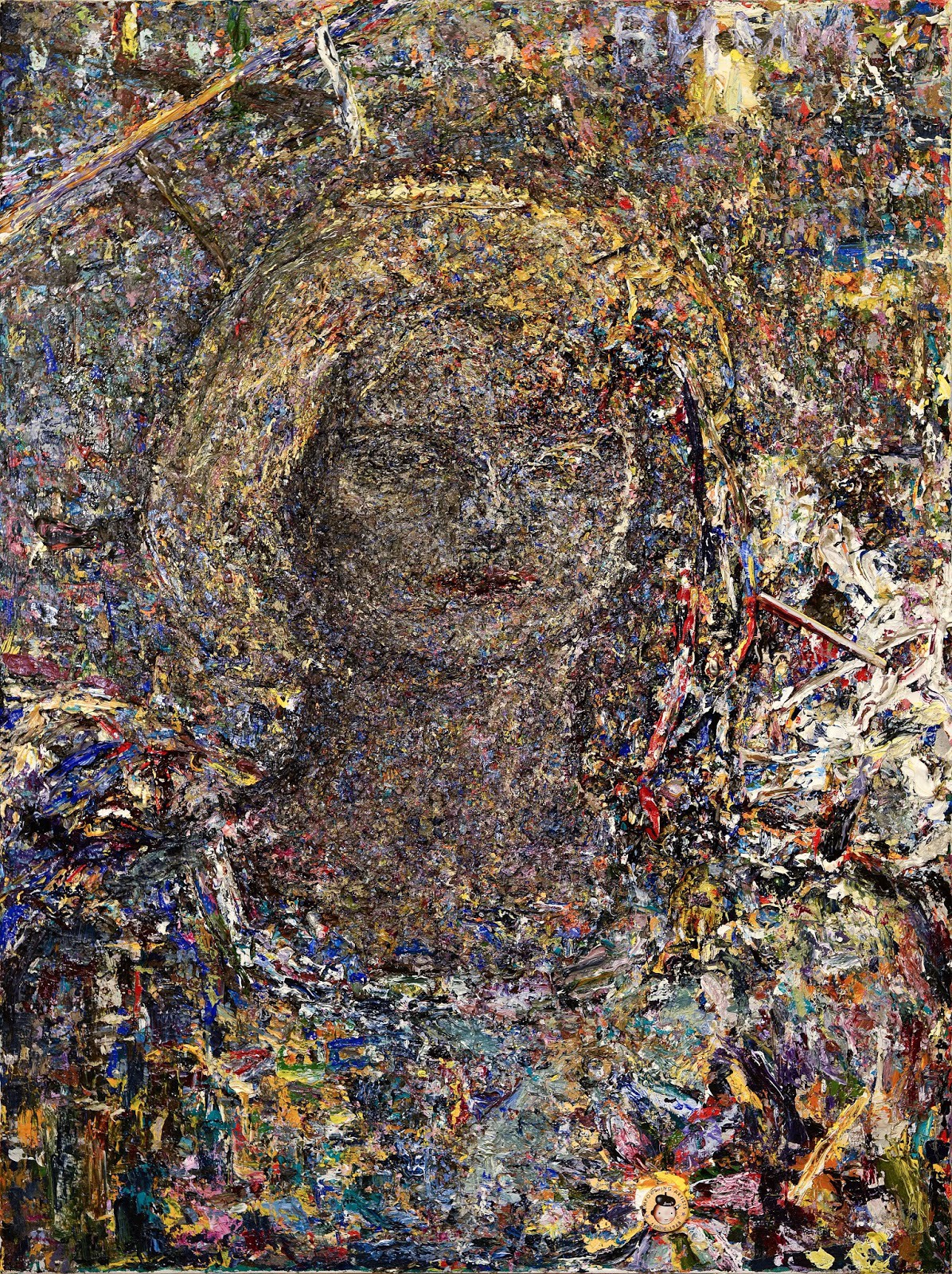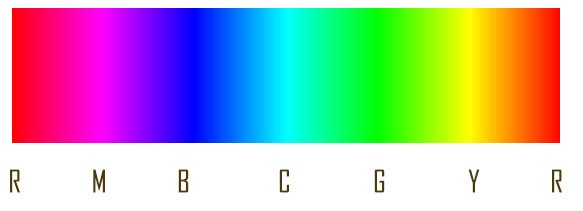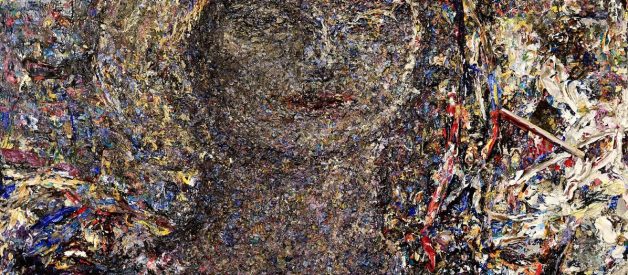 Portrait of Rimma Simonova by Chunbum Park
Portrait of Rimma Simonova by Chunbum Park
Genius, inspired, new, revolutionary, bold, brave, radical, etc? vs. Uninspired, indecisive, incompetent, lacking in substance or vision, etc?
These are some of the many similar and opposing adjectives that arise when one considers art and the artist.
Subjective words are used in forming an opinion and assessing the art. At first sight, a viewer of art will express in descriptive words the thoughts and feelings they experience. A mostly subjective endeavor. Subjective opinion cannot lend itself to being right or wrong. The process is entirely a personal and individual process.
This does not mean, however, that there is no one answer or opinion that is more right/correct/accurate than others. It merely means that there is just no reliable way to ascertain and verify the opinion objectively to form a unified consensus.
We all have different levels of understanding of art, we are free to form our opinions on the basis of free will, intuition, and personal understanding. With little doubt, our emotional state also dictates how we view the artwork at the time of viewing it. One might react to the same painting differently at separate points in time; viewing a piece of art when happy and loving it, viewing the same piece some time later and hating it or vice versa.
That said, viewing and understanding art does have roots in objectivity; that is in the mathematical reality of physics. While art may be viewed subjectively as a complex system of colors, form and perception, the underlying basis of that subjectivity is formed by an objective and mathematical reality of color theory, ratio, proportion, and to a lesser extent, composition and other elements that make up art.
To illustrate: If it was possible to filter out the complex and subjective elements of art such as perception and relativity of color, then the basic and universal law of colors would appear, revealing its most mathematical and objective characteristics.
 Color Spectrum
Color Spectrum
{
For example, the primary colors (in additive color mixing with light, as opposed to subtractive color mixing with pigments) are R, G, and B (Red, Green, and Blue). The secondary colors are C, M, Y (Cyan, Magenta, Yellow). Using basic knowledge we know that:
R + G = YR + B = MG + B = C
The secondary colors can also be added to make up primary colors:
M + Y = RC + Y = GM + C = B
In further detail, Blue is the inversion of Red and Green; Green is the inversion of Red and Blue; and Red is the inversion of Green and Blue combined:
B = -(R + G) = -YG = -(R + B) = -MR = -(G + B) = -C
This can be further proved in the following:
R + G = YR + B = MM + Y = RM + Y + B = MB = -Y}
The uncertainty (and subjectivity) that can be observed in art then ultimately arises from art being a complex system of the more objective elements of art.
I believe that just as the underlying basis of something as mysterious and spiritual as consciousness in the biological system is also the objective system and relative properties of physical particles interacting with each other to give rise to a more complex system. It will be discovered that the underlying basis of art is the same objective system and that the Physics gives rise to a more complex system of perception, emotions, feelings, and thoughts of subjectivity.
The same uncertainty observed in complex systems also can be observed in the most basic systems such as the atom (the uncertainty of the particle?s location, speed, and direction).
This ultimately means that truth, while existing and standing entirely on its own, is ?uncertain? to us, the local observers, in all or most instances, because the uncertainty also exists in complex and larger systems as well as in simple and smaller systems. Hence, believing in, or understanding truth ultimately relies on the matters of belief or faith-subjectivity.
The ?reality?, however, is one of an objective outcome, one that is grounded in physics. What appears to be a subjective endeavor in forming an opinion about art is rooted in an objective reality as well. Since it has been established that it is impossible to derive subjective truth in reality, the ?reality? then must become one of mathematical and physical objectivity.
Believing in truth is truly a personal and lonely endeavor of any local observer and actor. To find truth and understanding, as it relates to art, is very personal and unique to each individual. This is because, while consensus formed by media or majority opinion generally coincides with ?truth?, and people may mistake truth with consensus.
Finding truth has nothing to do with the opinion or consensus of a group of people, and it is a very individual and personal process and journey.
For example, take hypothetically that everyone in the world agrees that Mona Lisa is the greatest work of art ever made in the history of mankind, and if true relative to the less true opinions, then everyone would be right. Yet, as local observers and actors who can only experience their own thoughts (opinions shared by others could be lies or misleading, after all). Only our own personal opinion would truly matter to ourselves. And if, hypothetically, everyone?s opinions except our own were untrue, and our opinions were the only true opinions, then it would be a quite lonely and personal state of being to insist or believe one is right despite the opposing consensus of everyone else.
It is possible that only you could be right, and everyone else can be wrong, and the process and journey of understanding truth, as well as art, can be quite lonely and personal. This is ultimately an essential characteristic of our existence as the local observer and actor.
So the question arises when you are looking at a work of art, which could possibly be your own creation, and you must decide if it is a masterpiece, utter crap, or anything in-between. Is the artwork good or bad, and does it really matter if art is a subjective endeavor?
The opinion does matter, and your opinion could be more true or false than someone else?s from the perspective of truth.
Your opinion matters (especially if it is closer to truth or is truth) because it relates to how art is given to exist within a meritocracy. The need to assess and judge an artwork is always there. The philosophy and ideology behind the artwork are in constant conflict with an opposing point of view. Ultimately, what is merely a subjective opinion about an artwork becomes a form of truth that only the person himself or herself can carry or bear as a local observer and actor, within the grander struggle for ideological truth on art.
In a more personal example, I had many of my artworks critiqued and assessed by myself and others, online and in real life. I knew for certain that this particular piece of painting had real substance and merit. (Portrait of Rimma Simonova) My friends and classmates agreed that the painting was a great work of art. My instructor at school also said it was very strong.
However, online, vicious trolls and cyber bullies were critical and jealous had a completely different opinion. They criticized my art ruthlessly and dismissed it completely as an irrelevant piece of relic.
They refused to see any merit whatsoever within the artwork because they had already made up their mind to criticize and attack me, as was their everyday habit, before seeing the art itself. When I asked them how this was possible when people that I had met in real life all unanimously agreed on the merit of the artwork in question, they suggested that my friends were just being nice to me and flattering me, rather than speaking the ?truth? that they believed in.
In this instance, who is right and who is wrong, and does truth not matter? The discrepancy in the opinions was due to the conflict of ego, as well as the ideologies and ideas. The conflict defined and dictated the style of art in question.
I believed I was right, and the critics were wrong.
The truth that I believed in as a person, artist, and observer, without any means of proving it on objective grounds, was that it was self-evident the artwork that I had made had substantial merit, and it was sufficient for me to believe it alone.
From the perspective of free will, any opinion regarding art is valid. From the perspective of truth, there will be opinions that are more true than others, and the greater truth of utmost understanding and knowledge cannot be denied by a lesser truth of ignorance or ideological bias.
We are all on a journey to grow and develop our minds and understanding of the world, which includes art. We all have the chance to cast our view on what the art is, and what the truth should be, or could be.


